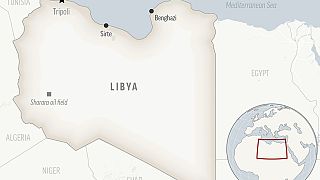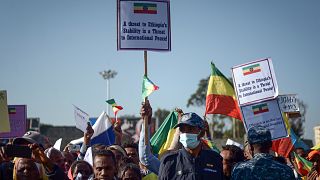Ethiopia
Ethiopia's national currency dropped 30 per cent against the dollar after its central Bank floated its birr currency on Monday.
This move is aimed at securing International Monetary Fund (IMF) support and advanced debt restructuring support.
Ethiopia has been grappling with high inflation and foreign currency shortages, and it defaulted on its government debt last year.
Negotiations with the IMF resumed after a peace deal in Tigray in 2022. The central bank will now allow banks to trade foreign currencies freely with limited interventions.
Prime Minister Abiy Ahmed announced the reforms, and the country expects $10.7 billion in external financing from the IMF, World Bank, and other creditors.
Importers welcomed the move, which eliminates reliance on the black market for dollars.
The U.S. supported the shift to a market-determined exchange rate, calling it necessary for addressing economic issues.
Ethiopia requested debt restructuring in 2021, but progress was delayed by the Tigray conflict.












01:10
China to remove tariffs on goods from all African countries
01:52
138 million child workers globally in 2024, number down from 2020
02:25
São Tomé and Príncipe: helping fishers and their future
00:52
Botswana cuts back on diamond production amid weak global demand
02:09
In a bid to aid its economy, Lebanon hopes to return to golden age of tourism
01:46
Trump and Musk's public breakup rocks Washington and Wall Street